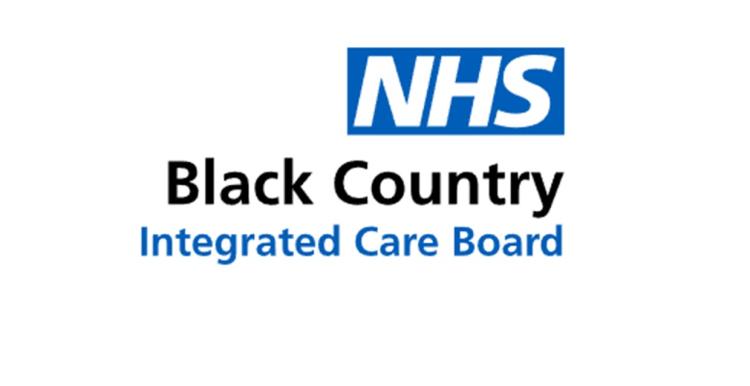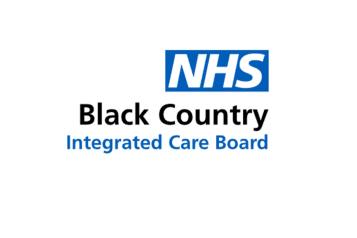Pregnant women urged to vaccinated
Pregnant women in the Black Country are being reminded to get vaccinated to protect themselves and their unborn babies from COVID-19, flu, respiratory syncytial virus (RSV) and other infectious illnesses.
During pregnancy, your immune system is naturally weaker than usual. This means you are less likely to fight off infections that can be harmful to you and your baby.
Vaccination during pregnancy can help prevent disease or make illness less serious for you, and for your baby. When you receive these vaccines, your body produces antibodies that pass through the placenta to your baby. This gives them protection for the first few months of their life when they are most vulnerable to infections.
Pregnant women are eligible for a number of vaccines, including:
• COVID-19 vaccine: you're at higher risk of getting seriously ill from COVID-19 if you're pregnant. If you get COVID-19 late in your pregnancy, your baby could also be at risk. It's safe to have the vaccine during any stage of pregnancy, from the first few weeks up to your expected due date.
• Flu vaccine: you should have the free flu vaccine every time you’re pregnant. During pregnancy, you’re at a greater risk of serious flu-related complications. The flu vaccine helps protect you and your developing baby against flu. It will protect you during your pregnancy and for at least three months after birth.
• RSV vaccine: RSV is a common virus that causes coughs and colds. RSV usually gets better by itself, but it can be serious for babies. You should be offered the RSV vaccine around the time of your 28-week antenatal appointment, but it can be given later if needed, including up until you go into labour.
• Whooping cough vaccine: whooping cough can be dangerous for newborns. Getting the whooping cough vaccine during pregnancy helps protect your baby from birth until they are old enough to be vaccinated themselves. The best time to get this vaccine is between 16 and 32 weeks of pregnancy.
Sally Roberts, Chief Nursing Officer for the NHS Black Country Integrated Care Board (ICB), said: “Pregnancy is a special time, and your health is more important than ever. Getting the right vaccinations can protect you and your baby from serious diseases.
“Pregnancy alters how the body responds to infections, increasing the risk of complications from these viruses. Vaccinations in pregnancy are safe and effective and is the best way to protect yourself and your baby, especially as we head into winter. The antibodies you develop after getting the vaccines are passed to your baby, offering crucial protection that lasts for the first few months of their lives.
“It’s normal to have questions or concerns about vaccinations during pregnancy but don’t hesitate to ask your midwife, GP or pharmacist. They are here to support you and your baby’s health every step of the way.”
The NHS in the Black Country has created a leaflet providing key information on the vaccinations recommended during pregnancy, why they are important and where you can get them. The leaflets will be given to pregnant women during their antenatal appointments at hospital.
During pregnancy, your immune system is naturally weaker than usual. This means you are less likely to fight off infections that can be harmful to you and your baby.
Vaccination during pregnancy can help prevent disease or make illness less serious for you, and for your baby. When you receive these vaccines, your body produces antibodies that pass through the placenta to your baby. This gives them protection for the first few months of their life when they are most vulnerable to infections.
Pregnant women are eligible for a number of vaccines, including:
• COVID-19 vaccine: you're at higher risk of getting seriously ill from COVID-19 if you're pregnant. If you get COVID-19 late in your pregnancy, your baby could also be at risk. It's safe to have the vaccine during any stage of pregnancy, from the first few weeks up to your expected due date.
• Flu vaccine: you should have the free flu vaccine every time you’re pregnant. During pregnancy, you’re at a greater risk of serious flu-related complications. The flu vaccine helps protect you and your developing baby against flu. It will protect you during your pregnancy and for at least three months after birth.
• RSV vaccine: RSV is a common virus that causes coughs and colds. RSV usually gets better by itself, but it can be serious for babies. You should be offered the RSV vaccine around the time of your 28-week antenatal appointment, but it can be given later if needed, including up until you go into labour.
• Whooping cough vaccine: whooping cough can be dangerous for newborns. Getting the whooping cough vaccine during pregnancy helps protect your baby from birth until they are old enough to be vaccinated themselves. The best time to get this vaccine is between 16 and 32 weeks of pregnancy.
Sally Roberts, Chief Nursing Officer for the NHS Black Country Integrated Care Board (ICB), said: “Pregnancy is a special time, and your health is more important than ever. Getting the right vaccinations can protect you and your baby from serious diseases.
“Pregnancy alters how the body responds to infections, increasing the risk of complications from these viruses. Vaccinations in pregnancy are safe and effective and is the best way to protect yourself and your baby, especially as we head into winter. The antibodies you develop after getting the vaccines are passed to your baby, offering crucial protection that lasts for the first few months of their lives.
“It’s normal to have questions or concerns about vaccinations during pregnancy but don’t hesitate to ask your midwife, GP or pharmacist. They are here to support you and your baby’s health every step of the way.”
The NHS in the Black Country has created a leaflet providing key information on the vaccinations recommended during pregnancy, why they are important and where you can get them. The leaflets will be given to pregnant women during their antenatal appointments at hospital.



